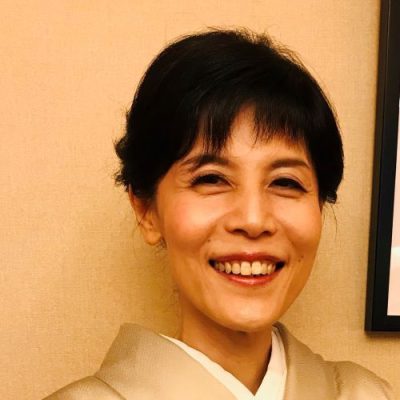教授
山口 いつ子
Professor
YAMAGUCHI, Itsuko

- 社会情報学コース
- アジア情報社会コース
研究テーマ
- 情報と法・政策―DX・AI時代の自由と共創のデザイン
- グローバル・リーガル・ヒストリー、表現・情報・メディアの自由、プライバシー・個人情報保護、サイバーセキュリティ・国家安全保障、知的財産権・著作権
- 区分:
- 学環所属(基幹・流動教員)
- Socio-information and communication studies course
- ITASIA program
Research Theme
- Information Law and Policy: Designing for Liberty and Co-creation in the Age of DX/AI
- Global Legal History, Freedom of Expression/Information/Media, Privacy, Data Protection, Cybersecurity, National Security, Intellectual Property Rights, Copyright
- Position:
- III Faculty (Core & Mobile)
- 略歴
・1968年生まれ。1994年東京大学大学院社会学研究科博士課程中退。同年東京大学社会情報研究所助手、1998年助教授、2000年大学院情報学環助教授、2007年准教授、2012年教授。2015年総長補佐。2016-2020年副学環長。
・1999-2000年ハーバード大学ロースクール、2007-2008年オックスフォード大学知的財産研究センターにて各一年間の在外研究。2013年デューク大学スクール・オブ・ローにて客員教授。2016年ミシガン大学ロースクールにてシニア・ミシガン・グロティウス研究員。
・博士(社会情報学、東京大学)
- 主要業績
主要著書・論文、研究プロジェクト、受賞等は、以下をご覧ください。
https://www.researchers.adm.u-tokyo.ac.jp/Profiles/1/0000070/profile.html?lang=ja
- 学環の研究事業
センテニアル戦略研究イニシアティブス
- 関連リンク
- Biography
・Born in 1968. Left the Doctoral Program of Graduate School of Sociology, The University of Tokyo in 1994 to be appointed as Research Associate, Institute of Socio-Information and Communication Studies, The University of Tokyo. Promoted to Associate Professor in 1998. Appointed as Associate Professor, Interfaculty Initiative in Information Studies, Graduate School of Interdisciplinary Information Studies, The University of Tokyo in 2000. Promoted to Professor in 2012. Assistant to the University President in 2015-2016. Vice Dean in 2016-2020.
・Conducted visiting research at Harvard Law School for one year in 1999-2000, and at Oxford Intellectual Property Research Centre for another year in 2007-2008. Visiting Professor, Duke University School of Law, in February-March 2013. Senior Michigan Grotius Research Scholar, the University of Michigan Law School in Fall 2016.
・Ph.D. in Socio-Information Studies (The University of Tokyo)
- Achievements
For Selected Bibliography, Research Projects, and Awards, please see the following webpage.
https://www.researchers.adm.u-tokyo.ac.jp/Profiles/1/0000070/profile.html?lang=en
- Research in III
Centennial Strategic Research Initiatives
- Related Links


(1) 情報と法・政策―グローバル・リーガル・ヒストリーの観点から
情報法・情報政策は、比較的新たに発展した研究分野です。その背景には、時代と国境を越えて繰り返し生じる、権力の不均衡と情報の非対称性という問題があります。問題の規模は、社会のデジタル化(DX)、グローバル化、人工知能(AI)に基づくデータ処理自動化等の進展とともに、拡張しています。それゆえに、問題解決のための法的措置の効果にも、相応の規模拡張性が必要とされます。こうした動態的な分野での法準則形成と政策選択のあり方について、歴史の智慧と規模の広がりのあるいわばグローバル・リーガル・ヒストリーの観点から、研究を進めています。関連する研究発表・拙稿として、例えば、以下をご覧ください。
・「プライバシーのグローバル保護―域外差止命令を通じた「東京効果」の拡張可能性」総務省情報通信法学研究会AI分科会(2025年)
https://www.soumu.go.jp/main_sosiki/kenkyu/hougakuken/R06_AI_02_siryou.html
・A Japanese Equivalent of the “Right to Be Forgotten”: Unveiling Judicial Proactiveness to Curb Algorithmic Determinism, in THE RIGHT TO BE FORGOTTEN: A COMPARATIVE STUDY OF THE EMERGENT RIGHT’S EVOLUTION AND APPLICATION IN EUROPE, THE AMERICAS, AND ASIA 291 (Franz Werro ed., 2020)
https://link.springer.com/chapter/10.1007/978-3-030-33512-0_15
(2) ケーススタディ—対立する諸価値間のフェアなバランス
法学は、外国語の学びに似たところがあり、面白さを実感するまでにはやや時間がかかります。学際情報学府の担当授業では、事前の法学の知識は必要ありません。情報技術・メディア・AI等に関する日米欧の具体的事例を取り上げながら、関連の判例・法令を実践的に学びます。こうしたケーススタディを通じて、プライバシー・表現の自由・国家安全保障・著作権等のいずれも重要な諸価値が複雑に絡み合い対立する場合の調整に際し、いかにして公正・公平(フェア)な均衡(バランス)を図るかについて、事実と理由に基づき議論を組み立てていきます。この分野の判例・法令を解説する文献の例として、以下をご覧ください。
・長谷部恭男・山口いつ子・宍戸常寿編『メディア判例百選 第2版』(有斐閣・2018年)
https://www.yuhikaku.co.jp/books/detail/9784641115415
・松井茂記・鈴木秀美・山口いつ子編『インターネット法』(有斐閣・2015年)
https://www.yuhikaku.co.jp/books/detail/9784641125834
[中国語版―周英・马燕菁译『网络法』(北京大学出版社・2023年)]
(3) 情報法の理論的体系化―共創のプロジェクト
情報法・情報政策という分野は、日本において、比較法的に見ても独特な発展の軌跡を辿ってきました。すなわち、日本の情報法とは、特に1960年代以降の社会の情報化・デジタル化・グローバル化等に伴い発展した、情報にかかわる多彩な法を、一つの法分野として体系化する構想(コンセプト)であると言えます。そもそも情報とは、言論・表現、メディア、コミュニケーション、データ、ならびに人間の認知作用および知的営為を含む、広い意味での「知」を象徴する存在です。情報と法・政策のこれまでの発展に基づき、情報法を「情報の価値とデザインを統治する法」と定義し、その理論的体系化を図るプロジェクトを通じて、誰にとっても「自由かつフェア」な社会の共創を目指しています。ご関心をもっていただけると幸いです。関連する拙著・拙稿として、例えば、以下をご覧ください。
・『情報法の構造―情報の自由・規制・保護』(東京大学出版会・2010年)
http://www.utp.or.jp/book/b306095.html
・「情報権力分立―自由と共創のためのデジタル統治構造の透明化・民主化」情報学研究101号(2021年)39頁以下
https://repository.dl.itc.u-tokyo.ac.jp/records/2002826
・「権力統制主体としてのマスメディアの機能と課題―デジタル統治の権力監視機能の担保としての自由・公開性・透明性設計」公法研究83号(2022年)147頁以下
・「言論被害への予備的救済としての刑事罰・差止命令―自由とフェアネスを実現するデザインの苛烈性と先見性」憲法研究13号(2023年)19頁以下
https://www.shinzansha.co.jp/book/b10045232.html
・The Rise of “Global Information Law”: Centennial Perspectives on the Conceptualization of Japanese Information Law,
100 Journal of Information Studies 47 (2021)
https://repository.dl.itc.u-tokyo.ac.jp/records/2000144
(1) Information Law and Policy: A Perspective on Global Legal History
Although, “information law and policy” is a relatively new field of study, the underlying problem of power imbalances and informational power asymmetry has recurred across national borders and over centuries. This problem is being scaled up in increasingly digitalizing, globally connected societies. Indeed, global problems relating to digital transformation(DX) and automated/autonomous data processing enhanced by artificial intelligence(AI) often require legal solutions equipped with a global scalable effect. It is an intriguing research topic to envision the future of rulemaking and policy choices in such a dynamic field, in the light of the wisdom gained from global legal history.
(2) Case Studies: A Fair Balance between Competing Values
Studying law is just like mastering a foreign language. It takes time to make this learning process enjoyable. In my class at the Graduate School of Interdisciplinary Information Studies, prior legal knowledge is not necessary. We examine some legal cases related to information technology, media, and AI from a perspective of comparison between Japan, the United States, and the European Union. By building up arguments based on facts and logical reasoning, we learn how to strike a fair balance in complex legal cases between competing values, including but not limited to privacy, freedom of expression, national security, and copyright.
(3) Theorizing Information Law: Toward a Freer and Fairer Society
This field of “information law and policy” has followed a relatively unique path of development in Japan. The dynamic concept of “information law” has been in the process of formation since the 1960s in response to social trends surrounding digitalization and globalization. Information is not confined to traditional forms of expression, media or communication but extends to all areas of human cognition and intellectual endeavor. Theorizing this field of law enables us to make sense of a complex body of law governing the values and design of information. The ultimate purpose of this ongoing, cooperative project is to create a freer and fairer society. I look forward to sharing this important and fascinating project with you all.
(Written by Prof. Itsuko Yamaguchi; Translated by Mr. David C. Buist)